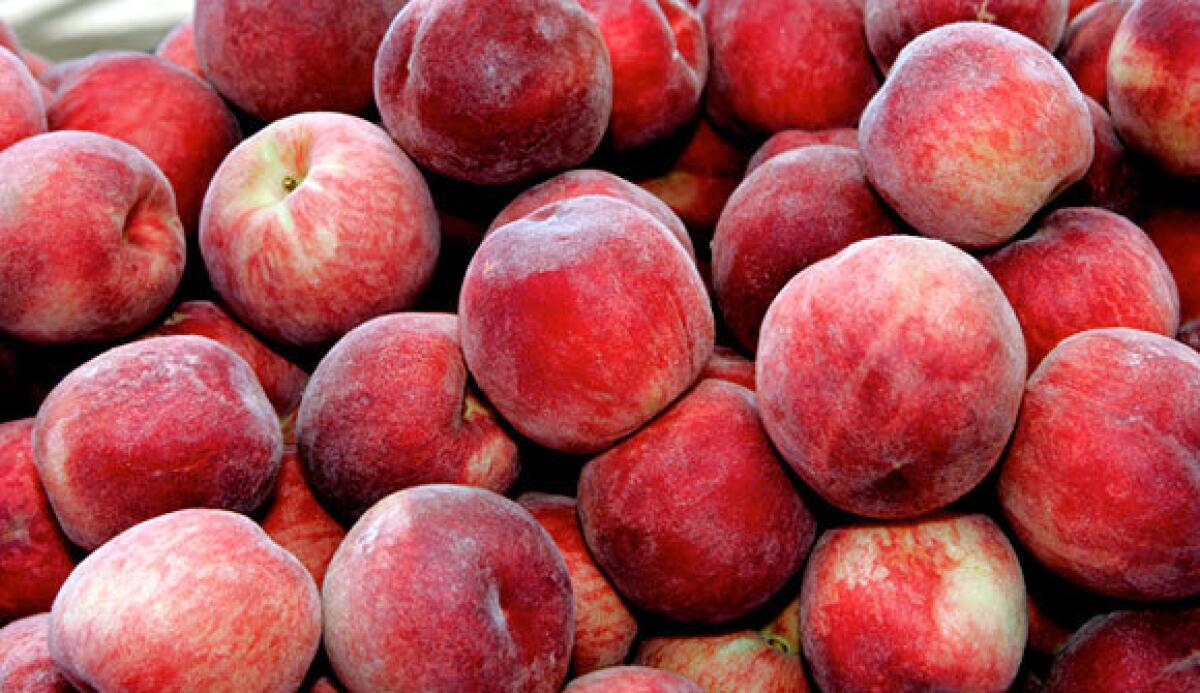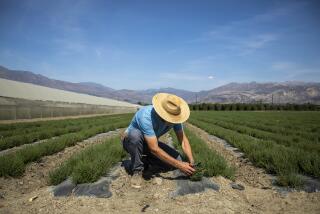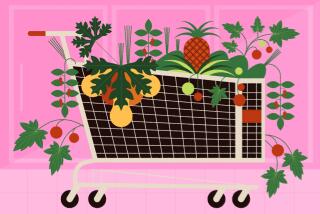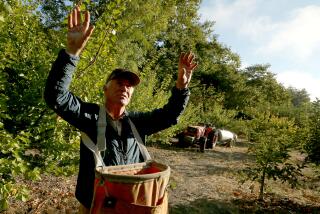Preserving the fruits of a season’s labors

My harvest season always begins with worry about weather, prices and accidents. If I’m fortunate, it ends with a hope for preservation -- both the preserving of foods and the sustaining of farms and family farmers.
As this summer started, the last thing I wanted to think about was extending it. Recent failures have outweighed gains. A string of 100-degree days stung my nectarines; they ripened unevenly and were easily bruised. Johnson grass, a truly evil weed, had taken over a vineyard, stealing sunlight and water, dwarfing the struggling grapes. A neighbor commented that there was more weed than vine, and he was right. I bent a tractor disk after hitting an end post while trying to cut a path down one row.
Now, as the end of the harvest draws near, the reality of unfulfilled “what ifs” burdens my rhythms. What if we had had more spring rains and the fruit could have had consistent water? What if I had a better tractor with more horsepower to pull the disk deeper? What if buyers had been more accepting of funny-looking peaches with extra-pointy tips, a character nuance of this 2009 season in our old Sun Crests?
But as August draws to a close, I find I am missing no longer having the next fruit variety to look forward to, the hope that finally something might work right and the farm will forgive my mistakes.
Desperate, I turn my thoughts to self-preservation: preserving my own produce. I am adding value to my farm by curing, canning or pickling my best fruits and vegetables. Other farmers are doing the same.
Time for ‘jamfest’
On our farm, we host an annual “jamfest,” bringing together friends and community to make peach jam. We peel, cook and sweat, and by the end of the evening, everyone takes home a piece of our farm in their jam jars. We sun-dry some more of our best fruits -- hoping to capture the magic of their flavor so it can be shared later.
By extending the season, I’m offered a reprieve, a second and third chance to do right. It’s like planting and harvesting a “winter crop” in August. Preserves seize the season -- time in a bottle -- and inspire creativity and poetry. During a school visit, I once asked sixth-graders to tell me what they saw as they examined small jars of peach jam. Most described the color and anticipated the aroma, but one bright boy, holding the jar up in the light, said, “I see summer.”
I want to see summer throughout the year and be reminded of both the joys and the challenges of this work. Farmers who live on their farms can’t hide from their mistakes, we live with them daily. Farming organically poses greater challenges -- pest control treatments often are slow to act and require acute timing. Grape mealy bug, an invasive creature that leaves sticky residues on our raisins, has evaded most of my efforts; I now realize it will take years to contain it.
And looming in my future is another challenge: water. All through the spring and summer, I studied the lack of snow in the Sierra and worried about future water supplies. Water is not only a scarce resource that will be allocated by price, it is also sacred and must be shared by many. The solution won’t be easy; I anticipate some of my fields will become fallow, if not next season, then soon.
But I also want to enjoy my successes, things I want to preserve. I call for a new definition of fresh, a new “seasonality” of food by exploring the old traditions of food preservation. We can have wonderful peaches in January with new twists on old methods like drying fruit so that during the cold and wet winter months we can revisit summer with each bite. A straight-from-the-farm flavor can be still had with the proper preservation techniques.
My parents understood this, my mom freezing our best peaches and my dad saving the most plump raisins for the ultimate domestic market: our home. They sometimes felt a little guilty, believing their actions were selfish. Yet why not reserve the best produce for those who best appreciate the quality and best understand what it took to bring a crop to harvest?
Perhaps for a farmer, the greatest benefit of preservation may involve our spirit. During the sprint of harvest, we often don’t have the time to savor our own produce. The worry element of farming can overwhelm us -- I often lose sight of priorities, trying to predict the weather and respond to the pressures of growing, of pests and plant diseases, and of course, to the occasionally bright but mostly dark skies of prices, input costs, labor and profits or losses.
Caught up in the whirlwind of harvest, I will sometimes surrender to a definition of success based on market prices, as if dollars were the only measure of my worth. Do cheap peaches imply I’m a lousy farmer? At this point in the year, I can’t help but make such a linkage. Isn’t that at the core of our capitalist system? This past season, some of our fruits had “arrival problems,” mostly bruises from being overripe. Buyers asked for “protection” and we made price adjustments to compensate for any losses. But who protects the farmer?
I believe time saves me from being overwhelmed by all of this. Only during the off-season, when things are slower, can I take the moment to enjoy our crop of peach jam. When life is calmer, our family can pause, snack on a dried peach slice and reflect: “Hey, maybe what we grew was and is great.”
Found memories
I remember cleaning out our shed. On Dad’s workbench I found an old, small tin coffee can. Inside the container, Dad had hidden a private stash of raisins -- snacks he’d enjoyed while repairing equipment during the off-season. Lifting the cover, the distinct aroma of sweet raisins filled our work space and made me pause and grin. I too sneak a handful for a quick treat.
Preserves enable farmers to enjoy the fruits of their labor on their own schedule, when time permits them. It’s these priceless moments that help inspire us for one more year. They can also trick us into believing in “next years” -- making foolish, wonderfully human but economically irrational decisions to keep farming despite all the negatives. The reminder that we did good can be enough motivation by itself to keep going. Unfortunately in today’s rapidly paced world, farmers don’t do this enough.
So tomorrow, as the summer heat lingers and I worry about what will break next, I will close my eyes, dream of winter rains and thick fog and the flavors of a prior harvest. Nothing will taste better or will be better for me.
Masumoto is an organic farmer; his most recent book is “Wisdom of the Last Farmer.”
More to Read
Eat your way across L.A.
Get our weekly Tasting Notes newsletter for reviews, news and more.
You may occasionally receive promotional content from the Los Angeles Times.






